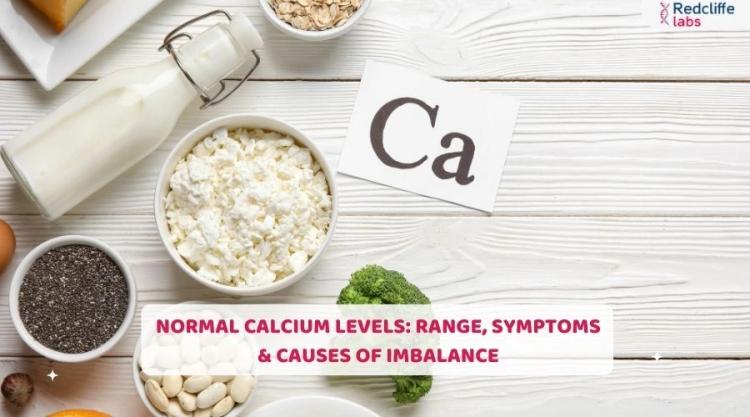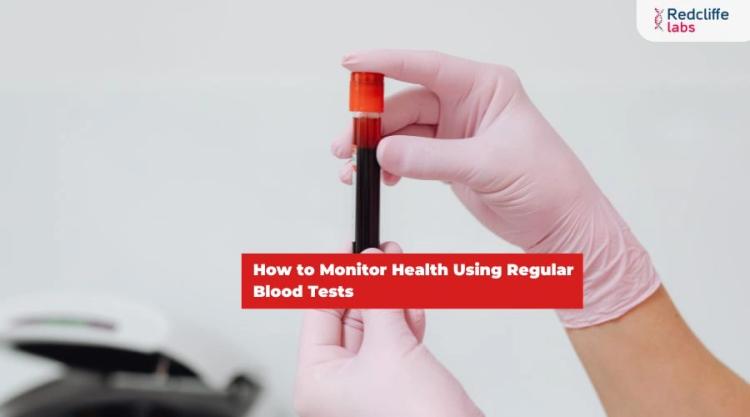Why Full Body Checkup Is Essential When You Turn 40

Medically Reviewed By
Dr. Ragiinii Sharma
Written By Srujana Mohanty
on Sep 30, 2022
Last Edit Made By Srujana Mohanty
on Jan 9, 2025

As you reach 40 years of age, your health must be your only priority. There are certain health tests that you must consider to optimise your wellness in future years. As you reach 40 years of age, your body also starts ageing, showing wear and tear symptoms. These symptoms can be reduced by taking a good diet, leading a healthy life, and regularly monitoring health.
In this article, let us talk about the importance of a whole body check-up package and the tests that males and females must consider after reaching 40 years of age.
Why is it important to get a full body check-up?
A full body checkup after the age of 40 years is essential. This is because your body changes with time. Symptoms of certain diseases take a long time to appear. These diseases can be fatal as well. Therefore, regular monitoring is very important to diagnose these diseases at an early stage so that their treatment is possible. Following are some of the benefits of getting a full body check-up done:
Track your vitals
Full body check-ups at regular intervals keep track of your body vitals. The vitals are the main indicators of your health. Any abnormality, disease, or disorder can be easily tracked by monitoring the levels of vitals in your body over time.
Early diagnosis of illness
Regular health check-ups are very important. Regularly analysing your health helps predict any disease or illness very early. The diagnosis of illnesses that show very few symptoms, like prostate cancer, hypertension, and high cholesterol, can be made at an early stage in life. If these diseases are left undiagnosed, they can lead to severe future complications like a heart attack or stroke.
Timely treatment of disease
The early diagnosis of the disease makes way for timely and effective treatment of the disease as well. Thus, an annual health check-up adds more years to your life. It acts as a precautionary measure also by preventing severe complications from occurring.
What tests must be done after 40 years of age?
Full body health check-ups are extremely important and should be done at least once a year. There are certain health tests which become essential when you cross 40 years of age. The basic test requirement varies in both males and females. These tests will help screen medical issues and assess the risk of future medical problems. These tests also encourage a healthy lifestyle that will always keep you, fitter. Here is a full body check-up test list that males and females must consider5 after 40 years of age.
The increasing trend of modern lifestyle and food habits has drastically affected our overall health. Thus, regular body check-ups are also very important, besides a healthy diet and life. The advanced full body check-up not only aids in the early diagnosis of diseases but also helps in the effective treatment of the disease and prevents severe future complications.
What tests must be done in males when they turn 40?
The whole body check-up list that males must get done at regular intervals after they reach 40 years of age is as follows.
Blood pressure screening
Blood pressure is an important parameter in assessing your overall health. You must get your blood pressure checked at least once every two years as soon as you cross 40 years of age. However, if you have kidney problems, heart-related disorders, or diabetes, you must check your blood pressure more often. 120/80 mm Hg is the normal reading for systolic and diastolic blood pressure.
- Get your blood pressure checked every year if your systolic blood pressure reads between 120-139 mm Hg and diastolic blood pressure reads between 80-89 mm Hg.
- Consult your doctor on ways by which you can reduce your blood pressure if the readings are above 130 mm Hg for systolic blood pressure and greater than 80 mm Hg for diastolic blood pressure.
Cholesterol screening
Cholesterol is an important constituent whose levels must be checked at regular intervals as they can be an important indication for several heart disorders. If you are at risk of developing coronary heart disease, then you must start taking cholesterol screening tests at above 35 years of age. A cholesterol screening test is recommended once every five years. However, if you change your lifestyle, diet, or weight, you might need to get the test done much sooner. The frequency of cholesterol screening tests increases if you have kidney problems, heart disease, or even diabetes.
Colorectal cancer screening
Colorectal cancer screening is generally done when you are above 45 years of age; however, if you are at a greater risk of developing colorectal cancer, you must get the screening done earlier. The major risk factors associated with colorectal cancer include a family history of polyps, colon cancer, inflammatory bowel disease, and ulcerative colitis. Colorectal cancer screening includes several tests like:
- Faecal immunochemical test (FIT)
- Stool-based faecal occult blood (gFOBT)
- Stool sDNA test
- Colonoscopy
- CT colonography
- Flexible sigmoidoscopy
Dental exam
A dental examination is something which every individual should go through. Taking good care of the health of your teeth is very important not only during your childhood days but also as you age. You must surely make a dental visit atleast twice a year for getting your teeth examined and cleaned. Your dentist will advise you if you need more frequent visits.
Diabetes screening
Diabetes is a very common disorder and its chances of occurrence increase as you age. Above 44 years of age, you must get your diabetes checked regularly. However, if you are overweight and your body mass index (BMI) is greater than 25, you must get your diabetes screened after age 35. Your doctor might also advise you to get a diabetes screening test if you are more prone to diabetes or if your blood pressure is above 130/80 mm Hg.
Eye exam
Once you turn 40, an eye examination is another test you must complete every 2-4 years. The frequency of the eye exam increases as you age more. This is because your chances of glaucoma and other vision disorders increase with age. If you have diabetes, you must get an eye exam every year.
Lung cancer screening
Lung cancer screening is very important because of the increased number of lung cancer cases reported yearly. The increased smoking and pollution have increased the risk of lung cancer. Thus, all people who are between 5 to 80 years of age, smoke around 20 packs of cigarettes in a year, and either smoke currently or have left smoking in the past 15 years, must get a lung cancer screening test done along with low-dose computed tomography.
Osteoporosis screening
As you know that the health of your bones deteriorates with age, you must get an osteoporosis screening test done after you reach 40 years of age. Several factors make you more prone to osteoporosis. The most common risk factor for osteoporosis includes low body weight, long-term use of steroids, excessive consumption of alcohol, smoking, fractures, and family history of osteoporosis.
Prostate cancer screening
Prostate cancer is a very common cancer in males. Screening for prostate cancer is generally done in males above 55 years of age. The test is not recommended for people with no prostate cancer symptoms. You must get the test done only after consulting your doctor if you have an increased risk of developing prostate cancer due to family history.
What test must be done on females when they turn 40?
The whole body check-up list that females must get done at regular intervals after they reach 40 years of age is as follows.
Breast cancer screening
Breast cancer is teh most common type of cancer that develops in females—the chances of the development of breast cancer increase with age. Thus, a monthly self-breast examination is recommended. Clinical breast examinations are done as a preventive test for breast cancer. You can have a mammogram test done every 1-2 years after you turn 40. Mammograms are done earlier in life in females with a family history of breast cancer.
Blood pressure screening
Just as in males, blood pressure is an important health parameter in females as well. Thus, you must check your blood pressure regularly after you reach 40 years of age.
Cervical cancer screening
Cervical cancer is another common form of cancer frequently occurring in females. The screening for cervical cancer should start from the age of 21 years. The pap test or HPV test is used once every 5 years for cervical cancer screening in females above 30 years of age. You should get a pap test done every 3 years if you have new sexual partners. Pap test is not required if you have had 3 normal test reports in the past 10 years. If you have had a complete hysterectomy done without the diagnosis of cervical cancer, you do not require any cervical cancer screening test.
Colorectal cancer screening
You must get screened for colorectal cancer when you cross 40 years of age or have a family history of colon cancer, polyps, or inflammatory bowel syndrome. You must also get a colorectal cancer screening in case of ulcerative colitis. Colorectal cancer screening is necessary between 45 to 75 years of age. The screening tests for colorectal cancer are faecal immunochemical test (FIT), stool-based faecal occult blood test (gFOBT), stool sDNA-FIT test, CT colonography, flexible sigmoidoscopy, and colonoscopy.
Cholesterol screening
Cholesterol is an important health parameter in both males and females and a risk factor for coronary heart disease. Therefore, females must also get a cholesterol screening test done positively after the age of 45 years. Females should monitor their cholesterol levels once in every five years. However, if you change your lifestyle or diet, you may need to have teh test more frequently.
Skin examination
Skin cancer is also very common in females. Therefore, you should get your skin checked by a dermatologist at regular intervals. This is especially important in people at a higher risk of developing skin cancer. The group of high-risk people include people with a family history of skin cancer or who have a weakened immune system.
Takeaway
Master health check-up packages are important, and everyone above 40 years of age much get a whole body check-up done atleast once a year. This is recommended because ageing also brings with it a lot of disorders and illnesses. Thus, a general health check-up is a prophylactic approach to prevent major diseases from developing or progressing into severe complications. These regular health check-up tests differ in males and females depending on the diseases that commonly occur in different age groups, specifically males and females. Now that you know the tests you must get done after you reach 40 years of age, make sure you get them done at specific intervals.
Frequently Asked Questions (FAQs)
1. What changes should be made after 40 years of age to stay fit?
You must surely include certain things in your daily routine to stay fit. These tests include:
- Healthy eating habits
- Daily exercise
- Maintain proper body weight
- Adequate sleep
2. How often should you go for a full body health check-up?
The master health check-up must be done every 6-12 months to keep track of your body vitals.
3. What tests are included in full body check-ups?
Your full body check-up includes important parameters like ultrasound, X-ray, CT scan, mammography, bone mineral densitometry, and MRIs.
Leave a comment
1 Comments
Ahana Bjaja
Mar 10, 2023 at 5:45 PM.
Hi, my mother is 49 years old. Can you suggest me best health checkup package for her?
Myhealth Team
Mar 14, 2023 at 9:28 AM.
Ho Ahana, You can book the below packages: - 1. https://redcliffelabs.com/super-advance-full-body-checkup-female (This covers 99 Parameters) 2. https://redcliffelabs.com/stayfit-full-body-checkup-female (This covers 98 parameters) 3. https://redcliffelabs.com/motherhealth-basic (This covers 54 parameters) 4. https://redcliffelabs.com/package/motherhealth-platinum (This covers 76 parameters) Thankyou



